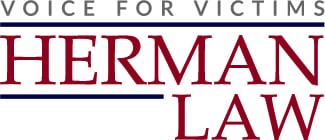I advocate for victims of sexual abuse. I represent the victims. That’s it. My sole responsibility is to protect the victims whether it’s a child victim of sexual abuse or an adult survivor, an adult who was abused as a child. My role and my job, which I take very seriously and which I feel very strongly about is to protect that victim, to empower that victim. One of the things we know is that many victims feel as though when they’re sexually abused is that there’s this power or control that’s taken from them in their life. And so, one of the things that’s most important to help that victim is to empower them, to give them back that sense of control int heir life and by doing that we help victims begin to heal and so that’s what we do, that’s what I do. So the moment a family comes in and sits down and says “my child’s been sexually abused, what do we do?” And, that’s an overwhelming feeling. That’s every parent’s worst nightmare. All of sudden this family is dealing with lawyers, police, investigator, therapists. There’s no handbook for this. No one tells them when your child is abused ‘This is what you should be prepared for’. So they come to me and what I try to do is give them a roadmap. I literally tell them, “Okay, take a breath. There is going to be light at the end of the tunnel and I’m going to show your options and things you can do to help your child heal.” I believe there’s three pillars to the healing process: Number one is the criminal process: When a child’s abused it’s a crime and it should be reported to the criminal authorities.
Now, that may be frustrating and it often is sometimes because what many victims don’t realize is they’re not a party in the criminal case. They are a witness. It’s the state against the perpetrator, the criminal defendant and the prosecutor is going to make their own decisions. They might consult with the family, but pretty much the prosecutor is concerned about bringing the prosecution on behalf of the state, but it’s important they report the crime nonetheless because it validates for the victim that a crime was committed and that’s what we do in our society. Number two it’s a civil case: and the civil case is primarily what I do which is to bring a civil case for money damages against usually the institution that has enabled or was negligent in allowing this sexual abuse to take place. It’s also important because it validates for the victim that something bad happened and it’s not their fault and we’re seeking to hold the parties accountable and responsible that are responsible. And so, that’s an important part of the healing process; it’s giving a voice to the victim because unlike the criminal case, in the civil case the victim is the party. The victim is my client and they make the decisions or their family makes decisions on their behalf if they’re a child on how to handle that case. The third part is therapy. It’s professional and it’s family and friends who are supporting the victim. It’s very important and can never be left out of the process. Therapy by professional is critical because by processing what happened with a professional victims can heal victims can heal, begin that healing process, make sense of what happened to them, begin to understand how it’s impacting them. Familiar support and friends who are supporting them in this process also very important. And so, those three pillars, I think, all combine to really help a victim heal. Now, my role is usually the civil case, but we also get involved in the criminal to the extent we can in terms of overseeing what’s happening on behalf of the victim, interfacing with the authorities so we can explain to the victim what’s going on, attending hearings, attending deposition with our clients. And the therapy we want to make sure and we do that the clients are in therapy and they are getting therapy that they feel is appropriate.
